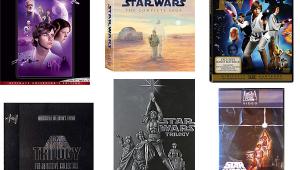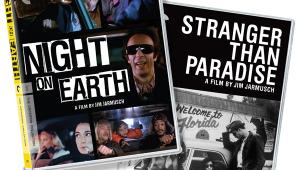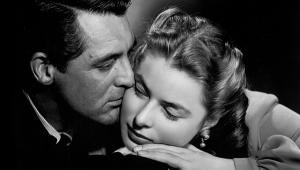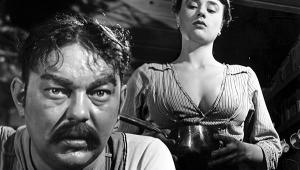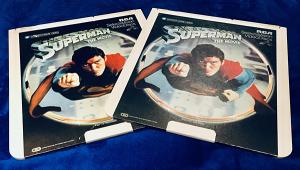Sherlock Holmes in Wartime
Picture ***
Sound ***
Film ***
Sherlock Holmes is one of the most enduring characters of 20th-century fiction. Dozens of movies and TV shows have been made about Sir Arthur Conan Doyle's irrepressible detective. Holmes fans abound still; several early films were among the first classics to be transferred to DVD.
 The UCLA Film and Television Archive has meticulously restored this group to 35mm, and it's safe to say the DVD transfers are at least as good as the originals. The abrupt splices, surface glitches, and weak sound familiar to viewers of 1960s and '70s late-night television have been completely eliminated. The restoration is so good that it's likely home theater fans will have a better experience than moviegoers did when these films first ran commercially 60 years ago. The black-and-white contrast lends a spooky malevolence to the film noir cinematography, and the dialog is totally clear.
The UCLA Film and Television Archive has meticulously restored this group to 35mm, and it's safe to say the DVD transfers are at least as good as the originals. The abrupt splices, surface glitches, and weak sound familiar to viewers of 1960s and '70s late-night television have been completely eliminated. The restoration is so good that it's likely home theater fans will have a better experience than moviegoers did when these films first ran commercially 60 years ago. The black-and-white contrast lends a spooky malevolence to the film noir cinematography, and the dialog is totally clear.
In this quartet of wartime yarns, originally released in 1942 and 1943, Holmes saves Western civilization from Nazi domination through a combination of arcane knowledge, observation, insight, wit, bravado, disguise, stealth, amazingly unlikely coincidence, and an unnatural amount of good luck. Basil Rathbone, of course, plays Holmes, a character with whom he became totally identified in the public mind. Nigel Bruce plays his sidekick, the bumbling Dr. Watson.
In The Secret Weapon, Holmes foils a Nazi plot to kidnap a Swiss scientist, escorting him and his highly accurate bombsight to England, where, it is hoped, its installation in RAF bombers will turn the tide against the Germans. The plan goes awry when Holmes' adversary, Dr. Moriarty (menacingly portrayed by Lionel Atwill), steals the device to sell to the highest bidder. To recapture it, Holmes must impersonate a wharf-rat merchant sailor and endure a near-death experience—all in a day's work for the indefatigable sleuth. The film was the first to feature Dennis Loey as Scotland Yard detective Inspector Lestrade. Both Scotland Yard and Lestrade became fixtures in subsequent Holmes movies, always bested by Holmes' keen wit.
The baffling Sherlock Holmes Faces Death finds our hero in an old mansion serving as a rehabilitation hospital for battle-weary soldiers. Apart from their uniforms, there isn't much about the film related to the war. It's a diversion from that oppressive subject, with murders to be solved or prevented, plenty of secret passages, strange rituals, and other stock mystery devices, all of them comprehensible to Holmes perhaps, but leaving the viewer wondering what has transpired.
Sherlock Holmes in Washington is a much more straightforward story, in which the detective is called in to find a missing British agent on a mission to deliver a top-secret bit of microfilm to Washington. The convoluted plot requires Holmes to impersonate an agitated antiques buyer while scuttling the efforts of yet another dastardly villain. Extremely unlikely coincidences pop up like mushrooms after a spring rain, and Holmes leverages each of them to deliver the goods to their proper destination. The film ends on a hokey but prescient note as Holmes and Watson motor toward the US Capitol, Holmes expounding patriotically on a glorious future when Britons and Americans will work shoulder to shoulder to rid the world of evil.
The Voice of Terror was the first in the series to pit Holmes and Watson against the Nazis. The voice of the title is an ostensibly German radio announcer who, in perfect English, predicts disasters just before they happen—an explosion on a busy dock, a fire in the city, a derailed troop train—thereby striking deeper fear into the hearts of the British public. Britain's top military security team is helpless, and recruits Holmes to solve the mystery. He does, with characteristic élan, exposing a trusted national advisor as a German mole planted 24 years earlier (!).
Contrived plots, stiff acting, and stilted dialog unite these four films. Holmes fans will accept with unblinking faith the recurring ploys of scant evidence, impossibly unlikely coincidence, and utterly brilliant deduction. Yet the lore is full of glaringly unanswered mysteries. What's with the foppish hair? None of the other characters ever notice. How do Holmes and Watson support themselves? They never ask for compensation or get paid. They never work, but just hang around the flat waiting for an emergency. What's the nature of their relationship? They have no interest in the opposite sex. How did Dr. Watson get through medical school? He can't find his hindquarters with both hands at high noon. Asking such questions is a bit like commenting that King Kong can't really be that big. Of course he can't, but the fantasy's still fun. Elementary, my dear Watson.—BW


